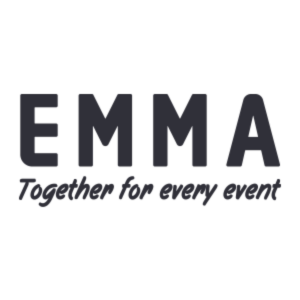Insights
INSIGHTS
All Topics
#BeMoreDigital Virtual Conference 2021: recap of day one
02 Mar 2021by Charity Digital
Find out what happened on the first day of the #BeMoreDigital Virtual Conference 2021
Has it been a year already?
As Danny Attias mentioned in today’s brilliant session on digital strategy, the 2020 conference was the last event many of us attended before COVID-19.
In 2021, things look a little different. But we have risen to the challenge and put together an excellent programme of digital learning that we’re excited to share with you.
Some Charity Digital employees are wearing masks and socially distancing in Charity Digital HQ. Others are working from the comfort of their own homes. All of us are proud to present the #BeMoreDigital Virtual Conference.
Day one kicked off with a brief intro from Charity Digital CEO, Jonathan Chevallier. Jonathan ran through the day’s events and introduced our sponsors. Our hosts Elizabeth Carter and Raabia Fazil then took the reins to run through house rules and to introduce a survey.
Events on the day were divided into two streams: Digital Marketing (sponsored by Salesforce.org) and Digital Strategy. Below we give a brief overview of each.
Digital Marketing
The Digital Marketing stream started bright and early with Chris Lowe, Principal Digital Engagement Consultant at Salesforce, presenting his webinar, ‘Constituent experience is king’.
Chris began by playfully changing the title to ‘Constituent relationships are king’ – emphasising the importance of maintaining engagement and relationships.
Chris’s webinar covered loads of important points, while also providing essential guidance for charities to use in daily operations. Chris offered charities advice on:
- Prioritising real-time interactions
- Gaining an understanding of audiences and converting them into supporters
- Using data to forge lasting relationships
- Using AI to improve the user experience
- Making sure you allow frictionless donations
The second session of the Digital Marketing stream covered ‘Top tips to make your digital marketing #BeMoreInclusive’.
Ellie Thompson, Communications Officer at Diversity and Ability, explained the importance of representing the diverse range of people who engage with charities. The webinar began by asking essential questions, including:
- Why do charities need to be more inclusive?
- Who might charities be excluding?
- What can charities do differently?
Ellie looked at how charities can ensure content, communications, and marketing are more accessible to all communities. She used social media to demonstrate her points. Ellie showed, for example, how charities can improve visual accessibility by using larger fonts and high-contrast imagery, how charities can improve elements of audio accessibility, and how charities can use inclusive language in their communications.
Stuart Watt, Sales Director at Loqate, then took us through a whirlwind tour of using data. Stuart began his webinar, ‘Maximise your data in a post-pandemic world’, by looking at recent research on donation habits, including changes in the charities people are supporting and the preferences in how they donate.
Stuart offered some advice to charities, emphasising the importance of a fast, frictionless experience that is trustworthy and secure. He covered how charities can increase conversions from new and existing customers. Stuart suggested that charities should refrain from insisting on registrations, reduce the number of form fields, and ensure that you are optimising mobile.
Stuart also focussed on some tips to maximise data quality, emphasising the importance of automation, inclusivity, and much more. Finally, Stuart gave charities an insight into how to access Loqate’s benchmarking report to see how they compare to other charities.
Next up, Rachel Erskine and Lilian Kamazi Mugisha from Amref Health Africa delivered their session on ‘Best practices for digital story telling’. They started the discussion by emphasising the importance of ethical representation. They explained that charities should focus on telling nuanced, authentic stories.
Rachel and Lilian told the audience that charities should always centre the voices and the stories of the people they support. Amref, for example, always aims to centre the African experience, particularly at the moment with conversations around COVID-19.
Rachel and Lilian went on to explain their experiences refining storytelling processes and described the ways in which they have improved. They discussed changes they have made, such as investing in local imagery, prioritising user-generated content, and using a bank of content that can be tailored to different contexts.
To finish the day, we had a panel discussion on ‘Dealing with hate on social media’. Nana Crawford, Social Media Manager at British Red Cross, Alex Hodges, Head of Corporate Comms & Public Affairs at Help for Heroes, and Hannah Graham, Head of Digital at Tearfund, all shared their experiences and offered some helpful advice for charities facing hate online.
Hosted by Claire Tavernier, Chair of Trustee Board at Charity Digital, the panel discussed, among many other things:
- How to take a step back when confronted by hate speech
- How to change the narrative and how to move the narrative forward
- How to ensure you’re amplifying the right voices
The panel also considered the need to take additional steps with hate speech, such as when charities should hide comments, block users, and report posts. The panel also looked at how charities protect their online community, ensure adequate care is provided to staff members, tackle myths and stereotypes, and provide clear social media guidelines throughout charity organisations.
Digital Strategy
The first session in the Digital Strategy stream was m-hance’s ‘Benefits for charities who choose Dynamics 365 to maximise mission impact’ webinar.
Tory Cassie, Consultant at m-hance, and James Glover, Head of Solutions Architecture at m-hance, kicked off the stream with a session exploring the capabilities of Microsoft Dynamics 365 and explaining how charities can use it to build bespoke and more dynamic supporter journeys through better tailoring of data fields.
Tory and James ran through the benefits of using Microsoft Dynamics 365 for Customer Relationship Management (CRM), including better data management and integration of multiple comms channels that can help you build a stronger and more relevant comms strategy.
They discussed the evolving functionality of modern CRM systems – which are allowing charity workers to unlock more value than ever. They gave the example of tailoring campaigns around specific events to people who have donated to similar campaigns in the past.
The next session was ‘The key components in delivering your digital strategy’, delivered by Danny Attias, Chief Digital & Information Officer at Anthony Nolan.
Danny’s webinar was all about the importance of keeping your mission front and centre. The session raised the important point that new technology should be built around meeting the needs of your service users and achieving your mission, to ensure the most effective possible integration with your organisation’s wider work.
Danny’s engaging session was broken down into three parts:
- Defining digital
- Building evergreen systems and processes
- Building digital literacy within your organisation
Next up, Sage presented ‘Digital Transformation for Nonprofit Finance Leaders’. The session delved into the changing role finance plays as a strategic and operational enabler in modern charity work.
In simple terms, the concept of a ‘strategic enabler’ refers to anything that helps an organisation to execute its strategy more efficiently and effectively. When applied to a non-profit organisation, these would be actions that align the organisation more closely with its objectives.
The Organisational Financial Literacy project has found that the majority of charity finance staff are not using the full range of their system’s functionality. By unlocking this, they can increase the role finance can play in transforming their organisation’s digital operations.
Historically, finance has been siloed in many organisations, but CFOs now find themselves having to confront new challenges as their work becomes more and more integral to the overall strategy of their organisation.
The session explained that, by making finance systems better integrated into an organisation’s wider digital infrastructure, charities can make better, more data-driven decisions that will increase their mission and empower charities to achieve their mission.
Alastair Fairley, Co-Founder & Joint Co-ordinator, and Liz Johnson, Director of Technical Operations, joined us from Hastings HEART to discuss the changing role of technology in empowering volunteers, with their session ‘Using digital to recruit and manage your volunteers on a budget’.
The charity shared their experience of swiftly building and mobilising a volunteer force in lockdown, as well as the lessons they learnt along the way. They particularly focused on how to make digital as user-friendly as possible for your volunteers.
The session walked attendees through the journey from start to finish, including information on setting up a registration process for volunteers and contacting people who need help.
They also explored how charities can use a database or CRM system to gain more data on potential volunteers, manage help requests, and make sure the right people are assigned to the right task.
The final session in this stream was ‘Tackling tech remotely’ – a fascinating webinar led by Alex Barker, Advice and Information Officer, and Chris Grant, Community Relationship Officer, both from AbilityNet.
The session focused on service delivery and social isolation. Alex and Chris explained that people in lockdown need access to the internet and tech more than ever. AbilityNet’s session explored the challenges and successes of tackling the issues of digital exclusion remotely.
They found that there is a perception among some of the digitally-excluded that the internet is too costly. But providers are doing a lot to provide affordable access for retired people, job seekers and people on benefits.
Some older people, or people with disabilities, might feel the internet isn’t for them – AbilityNet have found that it’s all about engaging with people and explaining how the internet can help them to pursue their interests. Alex and Grant emphasised the importance of building connections with users and keeping the human element up while working remotely.
Find out more
We have recorded many of today’s sessions and will be releasing them over the next few weeks – so do not worry if you missed any. Be sure to check out the Charity Digital website for updates.
And, finally, we hope that you will join us tomorrow for some workshopping and networking on the second day of the #BeMoreDigital Virtual Conference 2021.
AccessibilityAutomationCampaignsCharityCommunityCompanyConsultantCOVID-19CRM SystemsData & AnalyticsData ManagementDigital InfrastructureDigital MarketingDigital StrategyDirector/Senior ExecutiveEventsFinanceInfrastructureLeadership & SkillsManagerMarketingMarketing & CommunicationsOperations & EfficiencyOtherOverviewResearchRisk & ComplianceService DeliverySocialStrategyStreamsTechnologyTopicsVolunteerWebinar
More on this topic
Recommended Products
27 Jan 2025by Josie Sparling
How digital access challenges impact charities and service users
27 Jan 2025by Laura Stanley
Charity Digital Exchange: Grow your charity with AWS
24 Jan 2025by Joe Lepper
The charities tackling prison overcrowding
Our Events
Charity Digital Academy
Our courses aim, in just three hours, to enhance soft skills and hard skills, boost your knowledge of finance and artificial intelligence, and supercharge your digital capabilities. Check out some of the incredible options by clicking here.














